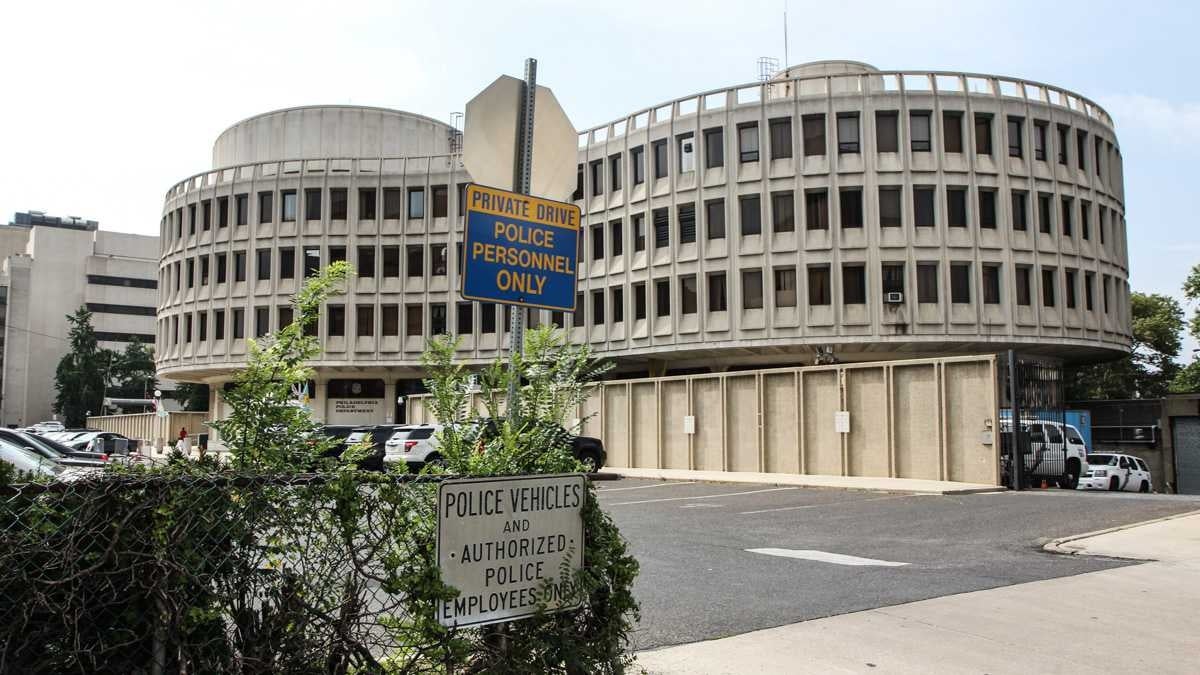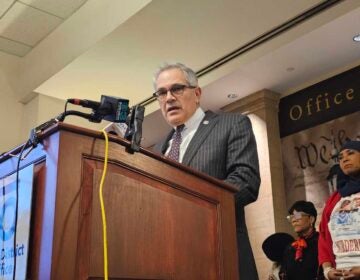How a district attorney can really get tough on crime

Philadelphia Police Department headquarters at 7th and Race streets (Kimberly Paynter/WHYY, file)
We’ve come to the time in the district attorney race when the appeals to fear come to the fore. Candidates claim they will be “tough on crime” and “put victims first,” and they boast about their prosecutorial experience.
I’m not going to tell anyone how to vote. However, from studying the criminal justice system for many years, I have a lot to say about how DAs can really keep us safe.
Let me begin by saying I’m not naïve about the challenge of doing that. I’ve read Machiavelli. He said that cruelty leads to kindness, and he pointed out that when disorder and chaos make safety paramount, there is sometimes no alternative to force, even brutal force, to create the order that makes people safe and commerce possible.
But I’ve also read in Machiavelli about how, after order is restored, we need good laws, scrupulously followed, to keep it.
Philadelphia is far more orderly than it was eight years ago. (And it is more orderly than 16 century Florence.) But to make it even more safe and prosperous, we need our police officers and our DA’s office to be smart and just, far more than we need them to be tough. We need them to understand four critical things about controlling crime.
Resources are limited, so we have to set priorities.
There are a lot of reasons to be against the death penalty, but perhaps the most important is that sentencing someone to death is extremely costly and brings no benefit in deterring crime. The DA’s office has limited resources, so pursuing the death penalty makes it harder for that office to do other important work.
Similarly, when the DA’s office focuses on putting every offender behind bars for as long as possible, cases take longer to resolve and less time and attention can be given to focusing on the relatively few criminals who commit most of the crime.
Finding and catching the small percentage of criminals who do the most damage is difficult, challenging work. I saw that when I was president of West Mt. Airy Neighbors and worked closely with the 14th District and the DA’s office to find and convict a young man who had committed a string of burglaries in our neighborhood. It took a huge effort not only to collect information about him and catch him but to make sure that members of the community were there to testify at his trial. That takes hard work and persistence, but it pays off in making our neighborhoods safer.
Saying that they should focus on high-priority cases doesn’t mean that we should forget the lesson that the police and DA can help sustain order by paying attention to minor infractions of the law. That may well be true. But that doesn’t mean it makes sense to throw the book at everyone who breaks a window. It is the certainty not the severity of punishment that deters crime.
When the DA and cops break the rules, they make us less safe.
Some police officers sometimes break the law, concocting evidence and making up stories either to put someone they “know” has committed a crime in jail, or to meet a quota, or for far more corrupt reasons. Some assistant DAs knowingly allow those police officers to testify, either to “put a bad guy away” or to meet one of their own implicit quotas.
Breaking the rules, however, doesn’t make us safer. For one thing, cops and DAs who break the rules sometimes make mistakes. It may make a victim feel better to find a culprit for a crime. But if the wrong person is in jail for that crime, the one who actually committed it is still free and likely committing other crimes.
Perhaps worse, cops and DAs who abuse the law become lazy. As I pointed out, police work is difficult and time consuming. Police officers who regularly cut corners, and DAs who let them, won’t make that effort. A DA who upholds the highest standards will encourage and reward the kind of police and investigatory work that does make us safer.
Putting the wrong people in jail for too long encourages crime.
Some people need to be locked up order to protect us. But when we put too many people in jail for too long for minor offenses, we encourage crime rather than reduce it. People in jail can’t support their families, which creates economic distress. They can’t get the education and good connections they need to hold down a good job. They become resentful against the community that put them in jail. And they get the wrong kind of education and connections in jail. In all these ways, jailing people for the wrong reasons and for too long creates more crime than it reduces.
Alienating the community encourages crime.
Good police work requires, as we saw, the cooperation of the community. Police officers who abuse their power generate fear and mistrust. A crime control policy that jails large numbers of people for minor offenses does so as well. Even worse, a DA’s office that fails to hold police officers responsible for bad behavior and that encourages over-incarceration alienates people and makes community cooperation impossible.
Machiavelli points out that nothing motivates people in politics more than fear. The tough-on-crime, prosecutorial-experience campaigns play on that fear. We should resist it. For too long, DAs in Philadelphia have run for office playing on our fears and then run their office in a way that was ineffective, in no small part because it was unjust.
What Philadelphia needs more than fearful voters this year are smart voters, voters who choose a candidate who understand that a DA who pursues justice smartly will also be one who can best keep us safe.
—
Marc Stier is a writer and activist from West Mt. Airy, Philadelphia.
WHYY is your source for fact-based, in-depth journalism and information. As a nonprofit organization, we rely on financial support from readers like you. Please give today.



